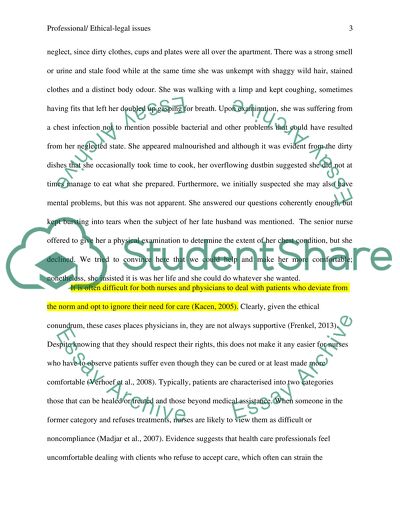Cite this document
(“An in-depth critical reflection of the professional/ Ethico-legal Essay”, n.d.)
An in-depth critical reflection of the professional/ Ethico-legal Essay. Retrieved from https://studentshare.org/nursing/1676104-an-in-depth-critical-reflection-of-the-professional-ethico-legal-issues-related-to-the-assessment-process
An in-depth critical reflection of the professional/ Ethico-legal Essay. Retrieved from https://studentshare.org/nursing/1676104-an-in-depth-critical-reflection-of-the-professional-ethico-legal-issues-related-to-the-assessment-process
(An in-Depth Critical Reflection of the Professional/ Ethico-Legal Essay)
An in-Depth Critical Reflection of the Professional/ Ethico-Legal Essay. https://studentshare.org/nursing/1676104-an-in-depth-critical-reflection-of-the-professional-ethico-legal-issues-related-to-the-assessment-process.
An in-Depth Critical Reflection of the Professional/ Ethico-Legal Essay. https://studentshare.org/nursing/1676104-an-in-depth-critical-reflection-of-the-professional-ethico-legal-issues-related-to-the-assessment-process.
“An in-Depth Critical Reflection of the Professional/ Ethico-Legal Essay”, n.d. https://studentshare.org/nursing/1676104-an-in-depth-critical-reflection-of-the-professional-ethico-legal-issues-related-to-the-assessment-process.


